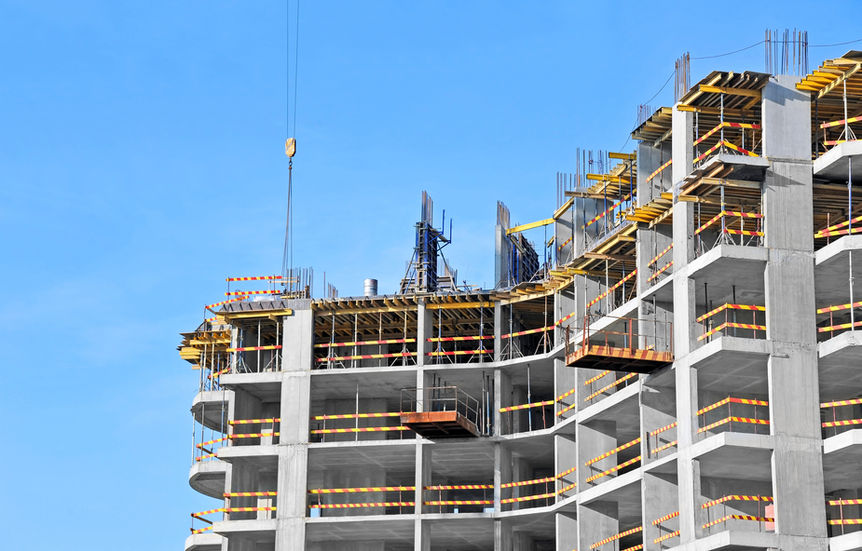There are distinct differences between commercial-titled properties and residential-titled properties. This includes their purposes, legal protection, taxes, and utility fees.
Converting a commercial title to a residential title is not straightforward, but it’s possible. One of the many solid reasons homeowners are converting their commercial property to residential property is due to the higher assessment rates and utility charges. There are also activities that you can and cannot do in each property type.
1. What are commercial-titled properties
Commercial properties were developed for business activities or business-related activity purposes. Therefore, commercial rates and tariffs (utilities and taxes) are applied to these properties, which are higher than the fees charged for residential-titled properties. Also, these properties do not fall under the jurisdiction of the Housing Development Act (HDA) and the owners are not entitled to Real Property Gains Tax (RPGT).
Serviced apartments, SoHos, SoVos, SoFos, SoLos are all commercial-titled properties. Serviced residences and SoHos are largely marketed as residential properties whereas SoVos, SoFos, SoLos are not designated for dwelling. As service apartments and SoHo are mainly used for residential purposes, they are protected under the HDA, and buyers of these units will be signing a standard Sales and Purchase Agreement (SPA).
On the contrary, SoVos and SoFos are essentially offices and not regulated under the Housing Development (Control and Licensing) Act 1966 (HDA). Hence, they do not have a standard SPA.
2. What are residential-titled properties
Residential properties include landed houses, condominiums, and flats. Property owners can live in the property, buy them as an investment or rent them out for extra income. A residential property holds either a Leasehold or a Freehold tenure. There are also other property titles that homeowners and potential buyers must be aware of. For example, Master Title, Individual Title, Strata Title, Malay Reserve Land, and Bumi Lot. Each of them has its pros and cons thus understanding them is crucial. This will affect your ownership, transfer of ownership, land conversion, price appreciation, and even marketability.
3. Can you convert commercial title to residential title
A commercial title can be converted to a residential title but the owner must be able to prove that the property is mainly or wholly used for dwelling.
4. How to convert a commercial property into a residential property
Different areas may have different regulations and requirements for converting commercial property to residential property. It is best to consult your local authorities if you’re planning for a property conversion. Besides financial planning, time, necessary documents, and other challenges, it also depends on local authorities’ rules, regulations, and approvals. Once approved, you will enjoy residential rates for taxes, assessment rates, and utility fees.
Under Section 52 of the National Land Code 1965, all alienated lands are divided into three categories of land use – Agriculture, Building and Industry. Valuation for the change of land title or use is normally carried out by the Valuation and Property Services Department (JPPH).
If a landowner intends to use his land for other use than the category stated in the title, the owner must apply to change the category of land use accordingly. Sections 124 and 124A of the National Land Code and the respective State Land Rules allow landowners to apply for such changes. The State Authority will charge an additional premium on all applications approved for change of use.
The landowner must submit his application to the Land Office/ Land and Mines Office and must comply with all the requirements. The landowner must be able to provide:
Copy of the title;
Address of the property (if any);
Site plan;
Location plan;
Development proposal;
Feasibility study (if any); and
Valuation report (if any)
If an applicant fulfils all requirements, JPPH will then report the valuation to the Land Office/ Land and Mines Office within 10 working days upon receiving the application by the office.
5. Residential title vs commercial title
6. Is it legal to run a business from a residential property in Malaysia
It is illegal to run a business from a residential property in Malaysia. You need to convert your residential property to commercial property and apply for a business permit or business licence for purposes like kindergartens, old folks’ homes, and caring homes. This includes renting it out for commercial purposes.
As for short-term rentals like Airbnb, currently, there’s no licence required for homestays and home-sharing in KL. Owners and operators of Airbnb are only required to register their short-term rental properties through the Kuala Lumpur City Hall (DBKL)’s licence portal.
However, in Penang, running a short-term rental business is a violation of the Municipal Council of Penang Island (Trades, Businesses, and Industries) By-Laws 1991 and the Town and Country Planning Act 1976 as it is against residential purposes.
The rules and regulations differ for every state or area. Speak to your local authorities or local government’s planning office before you start a short-term rental business.
Source: https://www.iproperty.com.my/





















































































![[UPDATED] Real Property Gains Tax (RPGT) Act 2021 in Malaysia](https://static.wixstatic.com/media/42661b067ebe4806a785cab2668ede60.jpg/v1/fill/w_327,h_250,fp_0.50_0.50,q_30,blur_30,enc_avif,quality_auto/42661b067ebe4806a785cab2668ede60.webp)
![[UPDATED] Real Property Gains Tax (RPGT) Act 2021 in Malaysia](https://static.wixstatic.com/media/42661b067ebe4806a785cab2668ede60.jpg/v1/fill/w_326,h_249,fp_0.50_0.50,q_90,enc_avif,quality_auto/42661b067ebe4806a785cab2668ede60.webp)







































































































































Comments